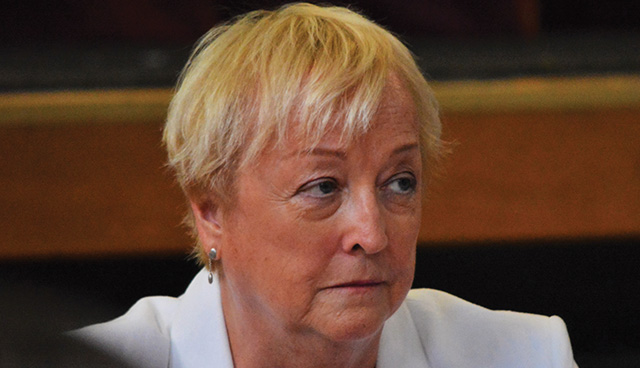What has the European union ever done for peace?


Good Friday Agreement signatory and former MLA Monica McWilliams along with former Director of the Community Foundation for Northern Ireland Avila Kilmurray dispute the claim against that the Agreement has outlived its usefulness.
When the EU received the 2012 Nobel Peace Prize, Northern Ireland’s peace process undoubtedly influenced the decision. EU policy-makers were supportive of both civil society activists and programme managers throughout the worst days of the Troubles, when what was to become the Belfast/Good Friday Agreement seemed utopian. EU social inclusion programmes channelled resources to those disadvantaged communities bearing the brunt of the violence. EU cross-Border and inter-territorial work served to forge quiet links and understanding. The PEACE Programmes to date have delivered over €1.3 billion to support some of the most difficult and sensitive peacebuilding work. The PEACE IV programme is billed to cover the period 2014-2020, providing an additional €270 million. The funding is welcome, but more important is the European validation of our rollercoaster attempts to consolidate peace.
The carefully worded Agreement argues the unique set of interlocking and inter-dependent relationships within Northern Ireland, between North and South on the island of Ireland and across ‘these islands’ of Britain and Ireland. It notes how the North-South Ministerial Council will consider EU policies and programmes as they affect both jurisdictions, alongside how the British Irish Council will consider EU issues given that Britain and Ireland are partners in the EU. The crucial Rights, Safeguards and Equality of Opportunities thread of the Agreement makes constant reference to the incorporation of the European Convention on Human Rights as an additional guarantee.
This issue of identity was frequently discussed during the negotiations. A core commitment in the Belfast/Good Friday Agreement was the disaggregation of citizenship and national identity. It confirmed the right of people in Northern Ireland to hold both British and Irish citizenship – a right that ‘would not be affected by any future changes in the status of Northern Ireland’. It has yet to be clarified as to whether Irish passport holders in Northern Ireland will have the entitlements of EU citizens when (if) the United Kingdom departs from the EU.
Alongside the issue of whether there will be free movement across our meandering and contested land border, there are other issues on whether Irish passport holders from Northern Ireland will be entitled to reciprocal health care in France, for example. Can ‘northern Irish’ students avail of the ERASMUS programme to further their education? These things do mattter but we are left in a state of uncertainty.
In this context, the statement in the Agreement that reads: ‘It would be wrong to make any change in the status of Northern Ireland save with the consent of its people’, begs the question about who are the ‘people’ to which this was referring. The UK Supreme Court held in its recent judgment that since it was contrary to the 1972 European Union Act to trigger Article 50, it was therefore unnecessary to determine whether the consent of the Northern Ireland Assembly was needed. Arguably, Brexit will change the status of Northern Ireland without the consent of its people and after 20 years of relative peace, when we had thought we had resolved this issue, we are now wondering where the decisions on Northern Ireland’s constitutional status will be decided.
What price peace?
We beg to differ with those who grumble that the Agreement might have outlived its usefulness. Instead, it needs full implementation with the combined strength of the British and Irish Governments behind it, without cavil or caveat. If this Agreement, which was ratified in both parts of Ireland, is to be tinkered with, then what is the basis for trusting another agreement? The Civic Forum, stood down by the Executive despite being in the agreement, should be re-instated. It could then advise, as it was intended, on the longer-term social, economic and cultural issues as well as deliberating on the potential outcomes of Brexit.
The shared responsibility as practiced currently in most local councils is a good model of governance but the current vacuum cannot be filled by local councillors alone – or by the London and Dublin administrations. If short-term interests continue to be put before the long-term challenge of conflict transformation, then that infamous ‘hand of history’, as far as the Conservative government is concerned, will be both heavy and unforgiving.





